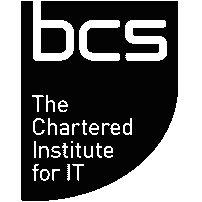United Kingdom, Andorra, Argentina, Australia, Austria, Belgium, Brazil, Cameroon, Canada, China, Colombia, Croatia, Cyprus, Denmark, Egypt, Estonia, Finland, France, Gambia, Germany, Ghana, Greece, Hong Kong, Hungary, India, Iran, Ireland, Italy, Jamaica, Japan, Kenya, Kosovo, Kuwait, Latvia, Lesotho, Liberia, Lithuania, Luxembourg, Malawi, Malta, Mauritius, Mexico, Monaco, Montenegro, Namibia, Netherland, New Zealand, Nigeria, Norway, Oman, Poland , Portugal, Qatar, San Marino, Saudi Arabia, Sierra Leone, Singapore, Slovakia, Somaliland, South Africa, South Korea, Southern Sudan, Spain, Sri Lanka, Sudan, Swaziland, Sweden, Switzerland, Tanzania, UAE, Uganda, United States, Vatican City, Venezuela, Zambia, Zimbabwe
ITIL®, PRINCE2®, PRINCE2 Agile®, MSP®, M_o_R®, P3O®, and MoP® are registered trade marks of PeopleCert Group, used under the permission of PeopleCert Group. The Swirl logo® is a trade mark of PeopleCert Group, used under the permission of PeopleCert Group. All rights reserved.
The APMG-International AgileBA and Swirl Device logo is a trademark of The APM Group Limited, used under permission of The APM Group Limited. All rights reserved. AgileBA is a registered trademark of Agile Business Consortium Ltd. All rights reserved.
The APMG International AgilePM and Swirl Device logo is a trademark of The APM Group Limited, used under permission of The APM Group Limited. All rights reserved. AgilePM® is a registered trademark of Agile Business Consortium Limited. All rights reserved.
The BRM Institute and APMG International Swirl Device logo is a trademark of Business Relationship Management Institute, Inc and The APM Group Limited. All rights reserved. BRMP® is a registered trademark of Business Relationship Management Institute.
- COBIT 2019 FOUNDATION
- COBIT 2019 BRIDGE COURSE
- COBIT 2019 DESIGN AND IMPLEMENTATION
- IMPLEMENTING THE NIST CYBERSECUTITY FRANEWORK USING COBIT 2019
The COBIT® 2019 logo is a trademark of Information Systems Audit and Control Association® (ISACA®). The Accredited by APMG International Swirl Device logo is a trademark of The APM Group Limited. All rights reserved. COBIT® is a Trademark of ISACA® registered in the United States and other countries.
The APMG International Facilitation and Swirl Device logo is a trademark of The APM Group Limited, used under permission of The APM Group Limited. All rights reserved. APMG International Facilitation is a trademark of The APM Group Limited. All rights reserved.
The APMG International Managing Benefits and Swirl Device is a trademark of The APM Group Limited, used under permission of The APM Group Limited. All rights reserved. APMG International Managing Benefits is a trademark of The APM Group Limited. All rights reserved.
The APMG International Praxis Framework and Swirl Device logo is a trademark of The APM Group Limited and Praxis Framework Ltd, used under permission of The APM Group Limited. All rights reserved. The Praxis Framework™ is a trademark of Praxis Framework Ltd. All rights reserved.
The APMG International Change Management and Swirl Device logo is a trademark of The APM Group Limited, used under permission of The APM Group Limited. All rights reserved. The APMG International Change Management and Swirl Device logo is a trademark of The APM Group Limited, used under permission of The APM Group Limited. All rights reserved.
All quoted prices do not include VAT, please. Current rate of VAT is 20%. VAT will be added when you are paying for your selected courses. All course bookings are subject to our Terms and Conditions. This website is regularly updated.
Course availability is confirmed when you have received a course confirmation email containing your joining Information and once payment has been authorised and collected. To check on confirmed courses, please call 0208 500 4534 or email us on info@trainingcreatively.com. By booking any of the courses in this website, delegates accept that the liability of any claim against Creative Consulting and Training Ltd is limited to the amount actually paid for the course they booked in the event of any successful claim. This includes, without limitation, direct loss, loss of business or profits (whether or not the loss of such profits was foreseeable, arose in the normal course of things or you have advised this Company of the possibility of such potential loss), damage caused to your computer, computer software, systems and programs and the data thereon or any other direct or indirect, consequential and incidental damages. By booking your course, you have confirmed your agreement to our Terms and Conditions..






